Interviews
Interview with Josh Shilling of Mountain Heart
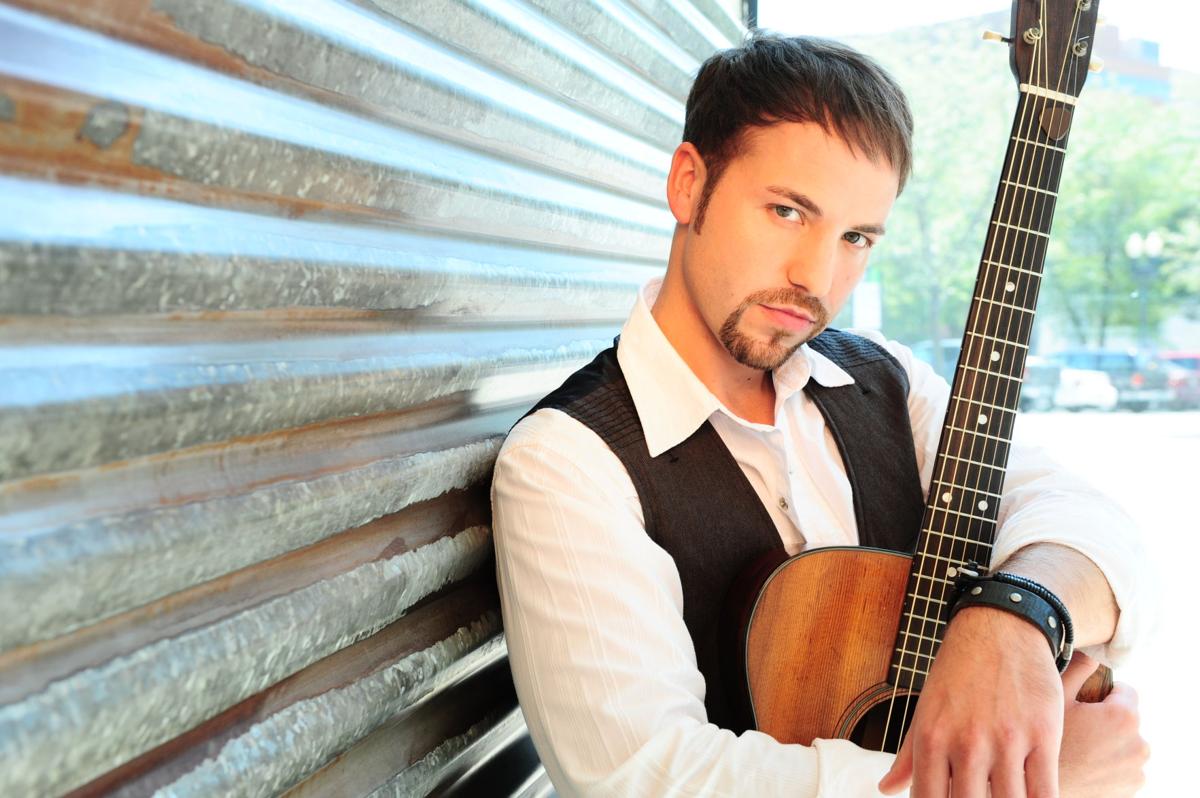
Mountain Heart has been around since 1999, but it wasn’t until the soulful Josh Shilling joined the band as their lead singer in 2007 that they really hit their stride. American Noise recently got the chance to chat with Josh about the band’s blend of country, rock, and bluegrass, as well as their upcoming performance on the Pentagon Channel
American Noise: Before you joined Mountain Heart, you were in a couple different rock and pop bands. How did you get involved with this band?
Josh Shilling: I was living in Southwest Virginia and I was recording a lot at studio just south of Roanoke called Doobie Shea. Doobie Shea Studios is where a lot of bluegrass acts including the Lonesome River Band, Dan Tyminski, even Alison Krauss have recorded. Mountain Heart had done quite a few projects there, and the guy that used to work as an engineer at the studio was from the area and he’d used me in the studio a lot; he was also working out on tour with Mountain Heart when they had a different lead singer. I think it all went down in ’05: he went out on the road with [Mountain Heart] as their audio guy and he let them hear some demos of me singing. From what I’ve been told, they were all really impressed with what I was doing. They reached out to me wanting to meet, so we all got together at the studio while they were working on a record. We joked about the idea that one day we could put this all together and have a fiery bluegrass act with a soulful, rockin’ kind of singer—like another version of newgrass with a few more elements to it.
We just talked about it for a year or so, and then at the end of 2006, I was working with a group out of Raleigh, North Carolina called The Embers; it was like a big, Vegas-style R&B show type of act. We had a horn section and I was playing piano and organ and all that good stuff. [Mountain Heart] had reached a point where they wanted to make a change with their lead singer; at that time I was definitely wanting to try something different because the tour schedule with The Embers was just relentless: we were out 250 days a year. They reached out to me and we didn’t know how it was going to work, but we all liked each other and thought it was worth a shot. In working at Doobie Shea, I had heard a lot of their music and I thought that out of all the bluegrass acts I’d listened to, they were special. There was something different about what they were doing. We got together and played a bunch of songs and I sang a few of their songs and I think everybody was extremely excited about the way it sounded. We decided I was going to leave the situation I was in and they were going to let their singer go. At the beginning of 2007, my first gig with the guys was at the Grand Ole Opry. That was kind of a sink or swim, trial by fire on the Opry stage. That’s a long story, but it’s how we all got together.
AN: On That Just Happened, you guys cover “Whipping Post” and Coe’s “The Ride,” two songs and artists that folks might not associate with bluegrass music. What drew you to those songs?
JS: That Just Happened is a cool project to us because for the first time in our careers we’re not on a record label. It’s a completely independent thing that we put together. The way that those songs came about was again a trial by fire. We’d go play a big bluegrass festival and would [debut] a song that somebody in the band wrote; we’d just try it and if the people responded well to it, we’d add it to the set. If that song kept going over well, we decided that we would record it.
I think we were in Atlanta, Georgia playing this bar one night. It was not necessarily a bluegrass crowd. Barry [Abernathy, the band’s banjo player] was like “Sing us something you like. Sing us something you would do in a country band or R & B band in Virginia.” I pulled out “The Ride” and played it acoustically and the barroom crowd just went nuts. Shortly thereafter we started playing a couple country festivals—we’ve done shows with Montgomery Gentry and Lynyrd Skynyrd—and you can’t be out there beating ‘em to death with traditional bluegrass. When we pulled out songs like “The Ride” and the crowd freaked out, it was pretty obvious that we needed to keep that type of song in our set.
I recorded “Whipping Post” on our live record in 2007. It was just me and the piano; it went over so well on that live album that we kept it in the show. Finally about a year ago we worked it up with the full band. People just started requesting it. 75% of the songs, including those two, are songs that have been proven out on the road. There are very few fillers on that project. We have a few more cover songs that we perform that people love.
We figured out which of those songs to record when we were in the studio and had enough time to track one more song. I Twittered and made a Facebook post to the fans and said something to the effect of “If we could record one song out of these three choices, what would you guys like us to cut?” There were hundreds of responses, and they wanted to hear “The Ride” and “Whipping Post.” So we recorded those songs for the fans. [The record] isn’t really pointed toward a bluegrass community. We want to appeal to multiple markets, and we do. We might go out and play a traditional bluegrass show with somebody like Tony Rice, but we also go out and do country shows with country acts. This project in particular is really dedicated to our fanbase and we hope that we recorded a song for all audiences
AN: You had a hand in most of the originals on the record. What’s the songwriting process like for you?
JS: When I’m not touring I write a lot with different songwriters here in Nashville. Most of the time you try not to put any restraints on the creative process; for me, it all depends on the day and the co-writer. The song “That Just Happened” came about when our fiddle player Jim VanCleve had an idea for the riff that you hear at the top of the song. He had that in mind, and I think originally he was thinking it was going to be an instrumental. After listening to the guys work through it, I was like “Have any of you thought about putting some lyrics to this?” A couple weeks later we got together, and we had the riff and intensity that he wanted, so the two of us made it what it is lyrically; to me it sounds like an anthem, singalong-type thing.
Sometimes you just have a hook or the title or a particular melody that you love. I just go into that process with an open mind and hope that whatever happens comes naturally and not try to force anything. Mountain Heart doesn’t always cut songs that are traditional as far as bluegrass is concerned, and they don’t always record songs that are super-contemporary country. You have to go into the writers’ room with Mountain Heart in mind when you’re writing a song for those guys. There’s a lot to finding the right song for Mountain Heart. I’ve got songs that we pitched to Carrie Underwood, Rascal Flatts, Diamond Rio—I’ve had holds and pitches to all these different acts. It’s interesting how difficult it is to find the perfect song for Mountain Heart. But usually when the guys hear it, it’s immediate and everybody’s on board with it. I think it has to do with acoustic instrumentation or a certain groove. Since they were originally solely bluegrass musicians, they want the song to have a certain feel rhythmically, and I’ve got a soulful tenor, so trying to find something that has all of those elements and is also interesting melody-wise of chord structure-wise to keep all these guys into it is a little bit tedious. Songwriting happens different every time. Sometimes it’s the title, sometimes it’s one chord, sometimes it’s the rhythm of going over a bridge or your windshield wipers slapping the hood of your car. Maybe that rhythm starts feeling like a groove to you. It just comes from all different directions. There’s no right or wrong way to do it; I think you’ve just got to accept the way the song comes together and just roll with it.
AN: You guys are taping something on Friday for the Pentagon Channel. Can you fill us in on that?
JS: They have a service member journalist who interviews artists for a show called Command Performance. The Pentagon Channel reaches out to 370 military bases nationwide and it’s in 24 million households. I talked to a few guys in the Air Force, and more often than not, this is one of the few channels they can actually pick up. It’s a very large network but it’s something that also reaches out overseas, so it’s going to be cool to be in there with some guys who are serving and I think we’re going to do a couple songs to dedicate to the guys in the armed forces and share some stories about family and friends who have served.
AN: If someone’s never been to a Mountain Heart show before, what’s in store for them Friday night at Rams Head?
JS: Mountain Heart is a very intense thing to see live. It’s over the top with diversity: we play music from a lot of different genres. It’s a very fiery, entertaining, energetic show; you’re definitely not going to fall asleep watching it. That’s why I became such a big fan of what the band’s all about. It’s a rockin’ bunch of musicians. We’ll be covering a lot of different songs from our favorite artists and bringing out tons of our new material and stuff from our latest record That Just Happened. Diverse music, amazing musicianship, and intensity is how I’d sum it up.
- Lists13 years ago
Top 10 Country Music Albums of 2010
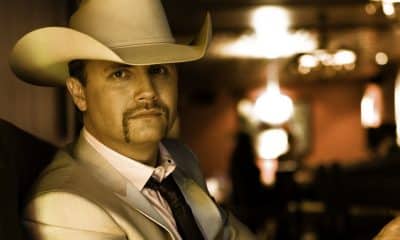
 Interviews6 years ago
Interviews6 years agoJohn Rich – The Interview

 Song Reviews16 years ago
Song Reviews16 years agoTaylor Swift – “Love Story”

 Interviews6 years ago
Interviews6 years agoHoneyhoney on Hiatus: Revisit our 2008 Interview with Suzanne Santo
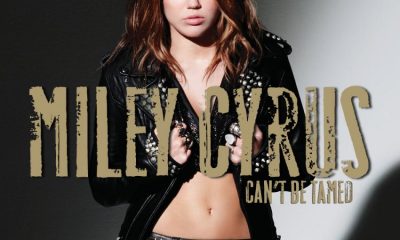
 Album Reviews14 years ago
Album Reviews14 years agoAlbum Review: Miley Cyrus – Can’t Be Tamed
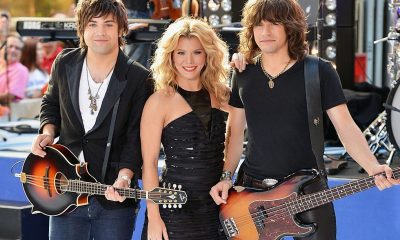
 Song Reviews6 years ago
Song Reviews6 years agoThe Band Perry – “Hip To My Heart”
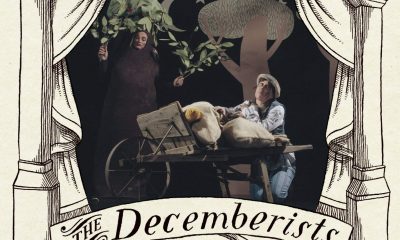
 Columns5 years ago
Columns5 years agoThe Link Between Folk Music’s Past and Present
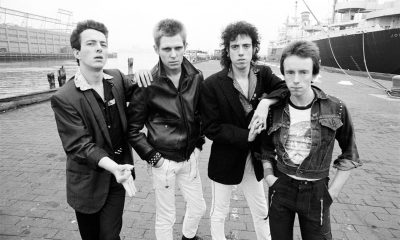
 Columns5 years ago
Columns5 years agoIs Marketing Killing Rock and Roll?

